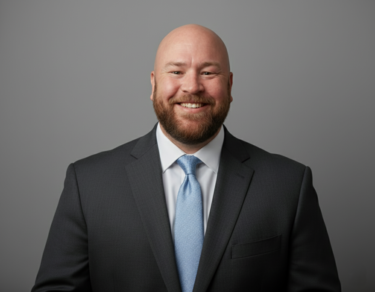Dave Anderson
Candidate for the Hamlet of Sherwood Park, Electoral Subdivision No. 2

Q: Why do you want to be a school trustee, and what experience do you bring to the role?
A: As Ward 2 Councillor for 12 years in Strathcona County, I’ve had the privilege of advocating for families, youth, and community priorities. I’m running for school board trustee because I believe strong public education is the foundation of a thriving community. I want to ensure our schools are safe, inclusive, and focused on student success. My experience in municipal governance has equipped me with a deep understanding of budgeting, policy development, and stakeholder engagement. I’ve worked closely with families, educators, and local organizations to address challenges and build solutions. I bring a collaborative mindset, a commitment to transparency, and a passion for public service that will serve Elk Island Public Schools well.
Q: One of the primary roles of a school board is advocating for public education and the Division. How do you see yourself fulfilling this responsibility?
A: As a Strathcona County Councillor, I’ve actively engaged in advocacy at both the provincial and federal levels—meeting with ministers, MLAs, and MPs to champion local priorities, including youth services, infrastructure, and community well-being. I understand how to navigate government systems and build relationships that drive results. As a school trustee, I’ll use that experience to advocate for equitable funding, inclusive policies, and resources that support student achievement. I’ll work collaboratively with fellow trustees, parents, and educators to amplify our division’s voice and ensure our schools are heard and valued at every level of government.
Q: What do you see as the biggest issue facing Elk Island Public Schools in the next four years, and what is your vision for addressing that issue?
A: One of the biggest challenges facing Elk Island Public Schools is ensuring sustainable, equitable funding to meet growing and diverse student needs. My relationships with provincial leaders—built through years of advocacy—position me to push for fair education investment and policy support. I also see an urgent need to strengthen mental health resources. Students today face complex pressures, and our guidance counsellors must be equipped to respond. I’ll advocate for expanded training in trauma-informed care, early intervention, and culturally sensitive mental health support. By investing in our staff and fostering inclusive classrooms, we can create safe, supportive environments where every student has the opportunity to thrive.
Q: What kind of relationship should a school division and its Board have with its community, its parents and its families?
A: A strong relationship between a school division and its community starts with trust, transparency, and meaningful engagement. Families deserve to feel heard, respected, and involved in shaping the educational experience. Throughout my years in public service, I’ve prioritized open dialogue and collaborative decision-making—whether through town halls, one-on-one conversations, or working alongside local organizations. That same approach applies to education. Trustees must be accessible, responsive, and proactive in building bridges between schools and the families they serve. I believe in creating space for diverse voices, listening with intent, and acting with integrity. When parents and communities are engaged, students thrive—and that’s the ultimate goal.
Q: What do you believe should be done to ensure diverse, equal, respectful and inclusive environments in schools?
A: Creating diverse, respectful, and inclusive environments in schools requires intentional leadership, community engagement, and policy that reflects lived realities. In municipal government, I’ve seen how inclusive planning—whether for public spaces or services—can foster belonging and equity. School boards must take a similar approach: listening to marginalized voices, supporting culturally responsive teaching, and ensuring staff reflect the diversity of our communities. Equity isn’t just a goal—it’s a lens through which decisions must be made. I believe in ongoing dialogue with families, targeted supports for students, and professional development that empowers educators to build inclusive classrooms. Respect grows when everyone feels seen.
Q: If elected, how would you support Elk Island Public Schools alternative programs—which include French Immersion, German Language and Culture, Ukrainian Language and Culture, Alternative Christian, Logos Christian, Advanced Placement, International Baccalaureate, Outreach and Sport for Life?
A: Supporting Elk Island’s alternative programs means recognizing the value of choice, culture, and community in education. Through my municipal experience, I’ve worked with diverse groups—faith communities, cultural organizations, and youth advocates—to build inclusive policies and programs that reflect our region’s richness. I bring that same commitment to the school board. Whether it’s French Immersion, German or Ukrainian Language and Culture, Logos Christian, or Alternative Christian programs, each reflects the unique values of our families. I also strongly support academic and personal growth opportunities like Advanced Placement, International Baccalaureate, Outreach, and Sport for Life. These programs empower students to challenge themselves, explore passions, and find pathways that fit. I’ll advocate for equitable resources and ensure all programs remain accessible, well-supported, and respectful of the diverse values that shape our schools.